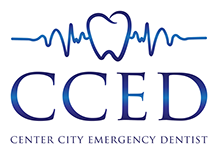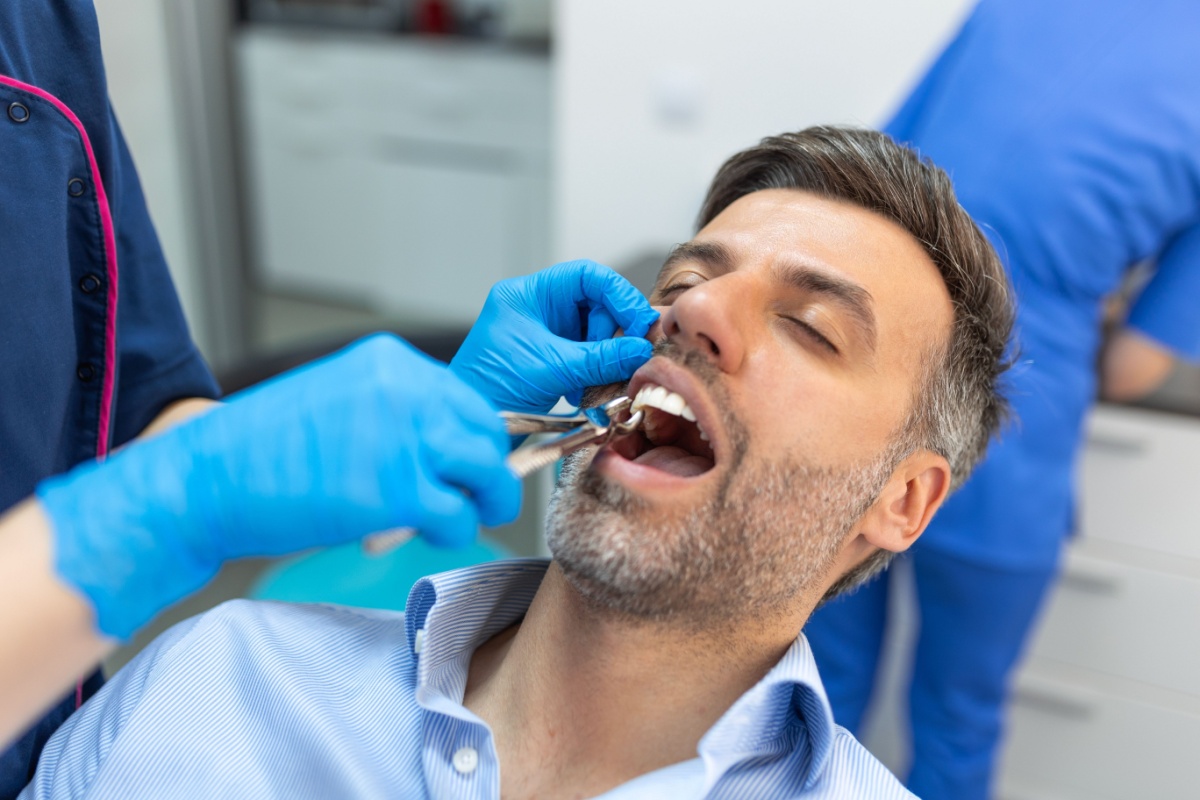Losing a permanent tooth is probably the last thing you want to think about. Yet, needing a tooth pulled happens more often than you might guess. The goal of modern dentistry is always to save a natural tooth whenever possible. But sometimes, a tooth extraction is the best step forward for your overall health and well-being. Knowing why this happens can help you take the right steps to keep your smile intact for life.
Reason #1: Advanced Tooth Decay Has Reached a Point of No Return
You know that tiny spot of tooth decay a dentist points out on an X-ray? If left alone, it doesn’t stay tiny. The bacteria causing the decay march their way through the tooth’s outer enamel and into the softer tissues inside. Over time, this cavity can become so large that it hollows out the tooth from within.
When there isn’t enough healthy tooth structure left, placing a filling or even a full crown becomes impossible. There’s simply nothing solid for the filling or crown to hold onto. At this stage, the tooth is often a source of serious pain and infection, which can affect your general health. Removing it is the most direct path to relief and stops the infection from spreading.
What you can do to avoid it: Keep up with brushing and flossing, and see your dentist for regular check-ups to catch tooth decay when it’s small and simple to fix.
Reason #2: A Severe Gum Disease, Known as Periodontitis, Has Weakened the Very Foundation of Your Smile
Think of your teeth like posts holding up a fence. Your gums and the bone in your jaw are the solid ground they’re set in. Gum disease is an infection that attacks this very ground. In its advanced stage, this disease destroys the ligaments and jawbone that anchor your teeth.
As the bone recedes, the teeth become loose. You might notice them shifting or wiggling. When the support system is gone, the tooth can’t be saved. The extraction is performed to clear out the deep infection and prevent further bone loss that could compromise neighboring teeth.
What you can do to avoid it: Daily cleaning between your teeth and getting professional cleanings are your best defenses against this silent disease.
Reason #3: An Impacted Tooth, Most Famously a Wisdom Tooth, Is Trapped Below the Gum Line and Causing Pain
Impacted teeth are those that don’t have enough room to erupt properly into your mouth. The most common culprits are your third molars, or wisdom teeth. Instead of growing straight up, they might grow sideways, get stuck against the tooth in front of them, or remain partially trapped beneath the gums. This awkward positioning can create a constant source of pressure and pain. It also makes the area nearly impossible to clean, leading to infections and cysts that can damage the jaw.
What you can do to avoid it: This is often developmental, but regular dental x-rays allow your dentist to monitor their growth and intervene before major problems start.
Reason #4: You’ve Experienced a Sudden Dental Trauma From an Accident or Injury
Life happens. A fall, a car accident, or a hard hit during a weekend sports game can cause significant dental trauma. While many chips and fractures can be repaired, some injuries are too severe. A crack that extends vertically down the root, deep below the gum line, is often a sentence for extraction.
When a tooth is fractured in this way, bacteria can get into the deepest parts of your jaw, causing infection and intense pain. No therapy can reliably seal a crack like that. Removing the hopelessly fractured tooth is the only way to resolve the issue and prepare the site for a future solution, like a dental implant.
What you can do to avoid it: Wear a custom-fitted mouthguard during contact sports and be mindful during activities where a facial injury is possible.
Reason #5: Your Jaw Is Too Crowded With Teeth to Begin Orthodontic Treatment
Sometimes, an extraction is not a response to a problem but a planned step toward a solution. In the world of orthodontics, one of the biggest challenges can be severe crowding, where there simply isn’t enough room in the jaw for all the teeth to fit in a straight line.
To make the space needed for braces or aligners to work their magic, a tooth may need to be removed. This is a very common part of orthodontics and is done to achieve the best long-term result: a bite that functions correctly and a smile that is easier to keep clean and healthy.
What you can do to avoid it: Early orthodontic evaluation in childhood can sometimes allow for interventions that create space without needing extractions later in life.
Partnering With the CCED Dental Team Can Put You on a Path to Incredible Oral Health
The thought of losing a tooth can cause a lot of anxiety. But by focusing on preventive habits and working closely with our dental team at Center City Emergency Dentist, you can stay ahead of these common problems. We help you maintain fantastic oral health to dramatically lower the odds of you ever facing an extraction. And if one becomes necessary, we’re here to guide you through the process, provide emergency dental care, or discuss excellent replacement options like a dental implant to keep your smile complete.

